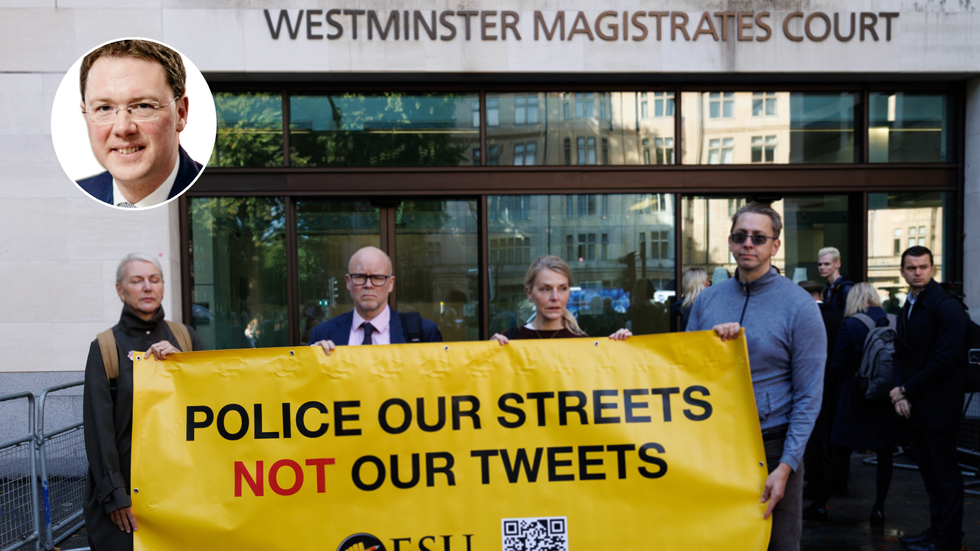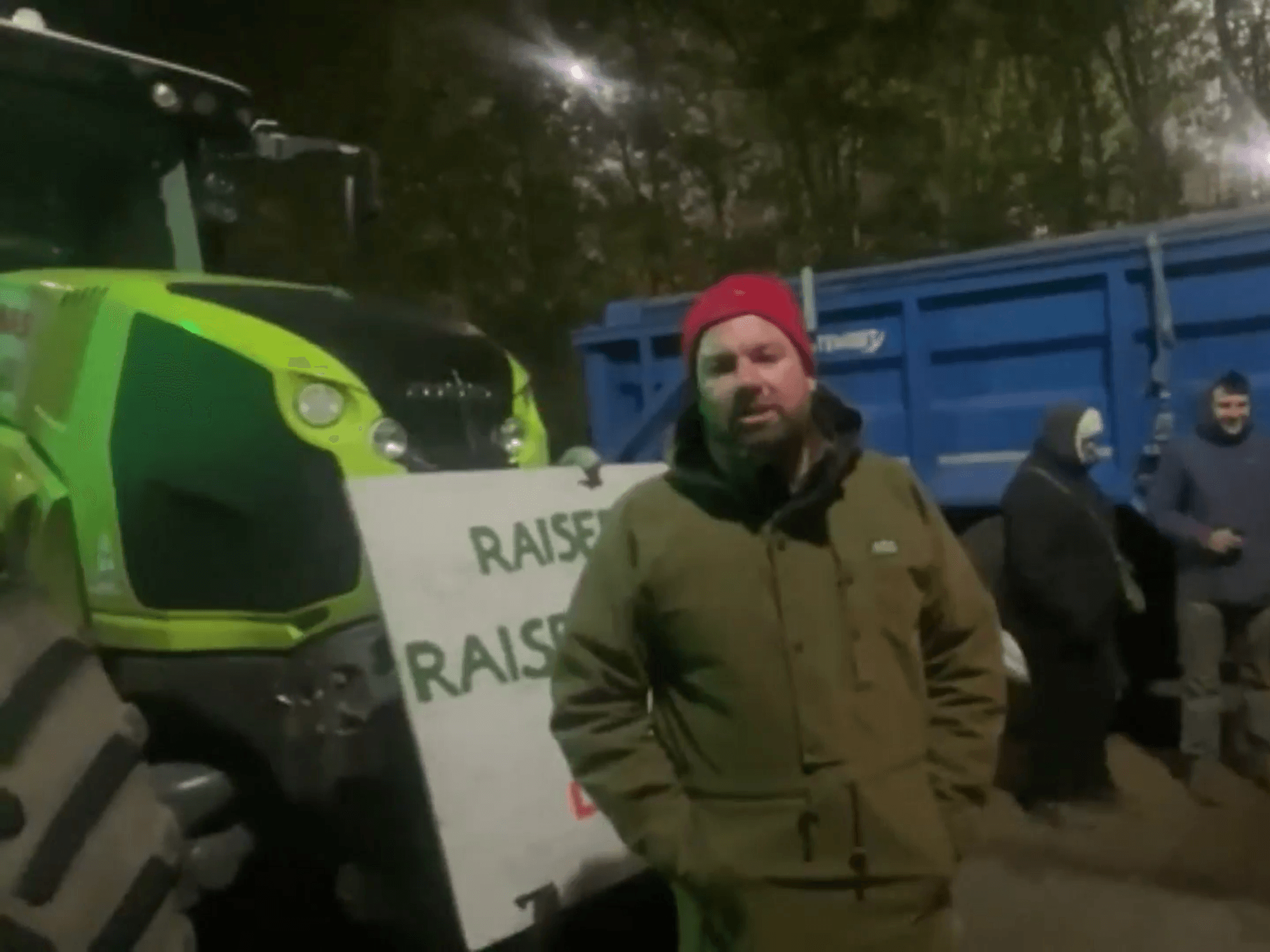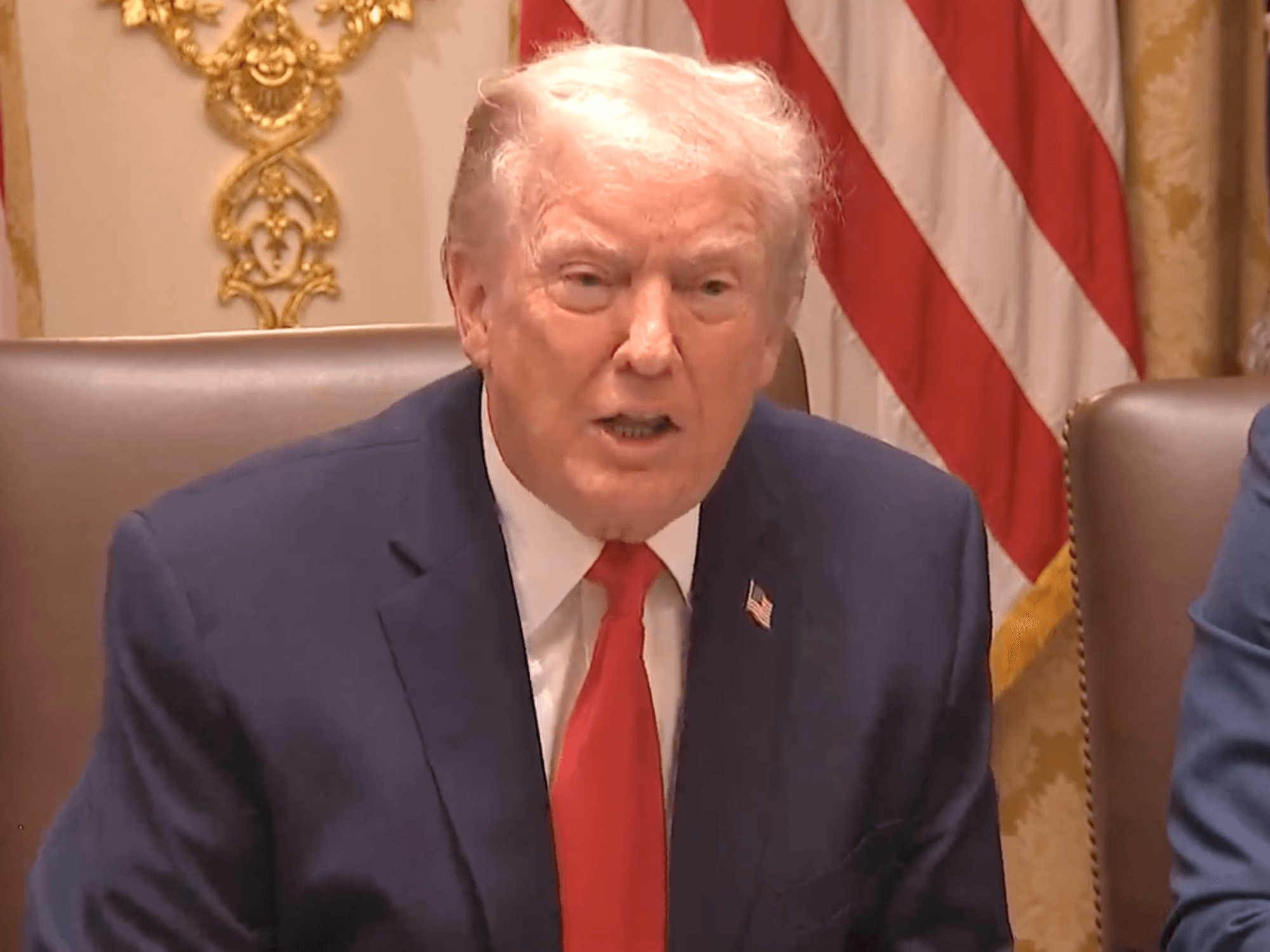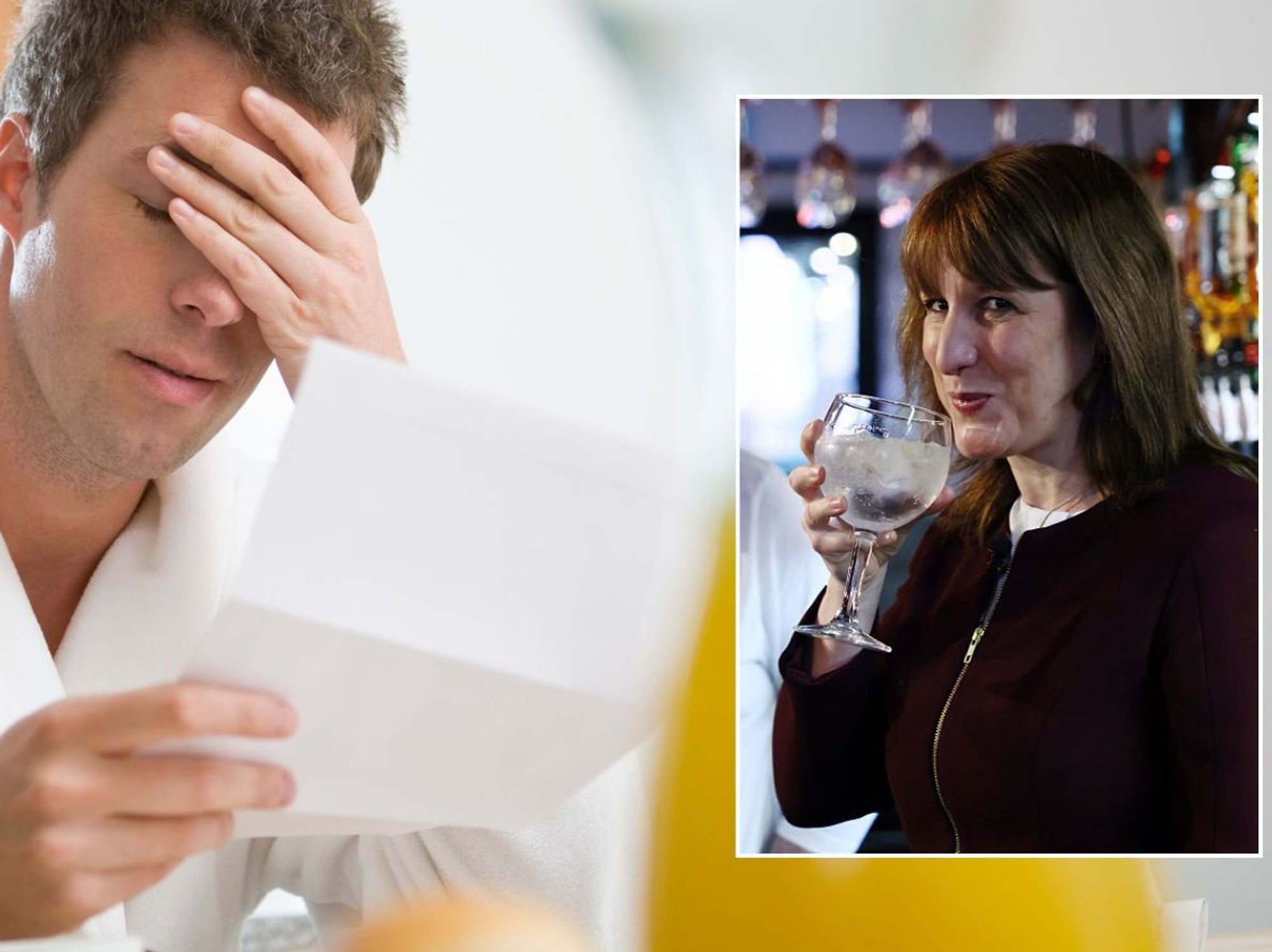Only the Brandenburg test can save Britain. Parliament must act now or freedom will crumble - Robert Courts

GB
It’s time for MPs to pick a side. Do they stand with free citizens, or not? asks the former solicitor general for England and Wales
Don't Miss
Most Read
Trending on GB News
The liberal left have been horrified by J.D. Vance’s recent warning shots over free speech in the UK. At the Munich Security Conference, he blasted Britain’s “renegade” free speech laws, and in August, he told then-Foreign Secretary that the UK was heading down a “very dark path” of censorship.
But it’s difficult to argue that he doesn’t have a point. And then along comes the Graham Linehan case, seemingly tailor-made by fate to prove that point: no less than five armed officers arresting a comedy writer at Heathrow. For tweets.
When using five armed police to surround and arrest a writer for posting gender-critical views is seen as an appropriate use of police time and resources, something has gone badly wrong. Regardless of whether this was at someone’s behest or an excess of policing zeal, it matters little. It’s policing thought. His bail conditions even stop him from using social media.
Is this really the Britain we now live in? When they read of events like this, the public can be forgiven for feeling that burglars and shoplifters are getting a free run, but that there seems to be endless time and money to chase people for saying things others don’t like.
Free citizens are treated as suspects, not because they’ve harmed anyone, but because they’ve offended someone. Parliament can and must step in. The Communications Act still makes “grossly offensive” posts a crime, and the definition is still wide open. Who decides what’s offensive and what is “grossly offensive”?

Only the Brandenburg test can save Britain. Parliament must act now or freedom will crumble - Robert Courts
|Getty Images
To be fair to the police, they’re left without any advice or guidance and have to do their best with what little they have. Into that void step aggressive campaigners and officials who have swallowed the dogma of the progressive left. The result: 30 people arrested every day for online comments, while real crimes go unpunished.
It doesn’t have to be like this. The United States faced this issue decades ago and set a clear test in Brandenburg v. Ohio (1969).
There, the Supreme Court ruled speech can only be punished if it is intended to incite immediate violence and likely to make it happen. That’s it. Unless words directly drive someone to imminent lawless action, they are protected.
Apply that here, and Linehan would never have been arrested. Nor would others be hauled before the courts for heated remarks. Offence, distaste, even anger: none of these are reasons to criminalise speech in a free country. If people say foolish or ugly things, the answer is debate, not handcuffs.
Britain needs its own Brandenburg test written into law. If the courts don’t have the right case before them to do the job themselves, then Parliament must legislate.
MPs must draw a bright line: speech is free unless it’s a deliberate call to violence. That means reforming the Online Safety Act, scrapping non-crime hate incident records, and rewriting laws that suggest that the police should be chasing tweets rather than thieves.
Free speech is the bedrock of a free society. Lose it, and every other freedom crumbles. If Parliament fails to act, Britain risks becoming a country where only approved opinions are safe to express. It’s time for MPs to pick a side. Do they stand with free citizens, or not?










